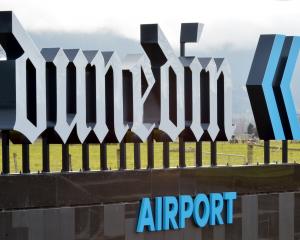
Dunedin City Council critic Russell Garbutt reacts to the recently released report by the Office of the Auditor-general on Delta's move into property development.
I have two major concerns. The first is the quality of the report and the second is that of a lack of accountability - particularly on the part of directors of council companies.
Audit NZ provides audit services to many local bodies, but the fact is the Local Government Act 2002 gave councils the power of ''general competence'' - sweeping powers to undertake many projects or actions.
At the same time, the Office of the Auditor-general (OAG) provides investigative services such as this report into the actions of Delta.
It may seem strange, but if a local government body goes feral, the body which investigates this and the one which provided audit services to that local body are both business units of the Auditor-general.
So, bearing that in mind, what has the OAG found about the dealings of Delta and its foray into property development? It found the actions of Delta and its directors and the directors of council umbrella company Dunedin City Holdings Ltd (DCHL) as well as the actions of the Dunedin city councillors at the time were such that ''expensive lessons were learned''.
This is corporate gobbledygook for saying this was a gigantic cock-up.
It says these actions of Delta contravened both the Companies Act and the Local Government Act, but interestingly it doesn't suggest any further action being taken against those who committed these breaches.
It also says Delta connived to obscure what it was doing from public scrutiny - but this unacceptable behaviour and attitude doesn't seem to attract a great deal of attention from the OAG, at least in regard to actions against those who proposed and supported these actions. Why is not explained.
But while it dwells on the changes made to the structure of DCHL and its DCC companies after the Larsen report, the OAG report is strangely silent on just why the DCC structured this whole governance shambles in the way that it did.
The DCC set up structures whereby individual DCC-owned companies had suites of handsomely paid directors, who reported to DCHL, which was largely populated by the very same directors who served on the individual companies' boards.
DCHL's then chairman, Paul Hudson, was at the same time a city councillor, as well as a director of many of the DCC companies within DCHL.
According to the OAG report, he didn't see himself as the conduit of information from Delta to DCHL and the DCC.
One wonders therefore just what he saw himself as. As has been reported by the OAG, the board of Delta decided something, then reported to itself under another name, DCHL, which was supposed to be taking an independent overview.
A clearer case of the fox looking after the chickens cannot be envisaged.
There was no effective oversight provided by this expensive structure. While Mayor Dave Cull says the DCC ''must take some share of the blame'', it was the DCC that demanded DCHL provide a dividend to the DCC to assist in the funding of the new rugby stadium, and if it couldn't provide that, it was to borrow to do so.
This fact is glossed over in the OAG report, but it could be successfully argued this financially irresponsible act was at the central core of what followed.
Just why all these experienced directors within DCHL meekly accepted the position of borrowing to pay dividends is simply not explored.
As to the deals themselves, Delta and DCHL told the OAG it got into property development to safeguard jobs in Central Otago and to provide a base for future work, but how and who approached whom about Delta getting into property development remains murky at best.
Mike Coburn was involved in the land ownership at both Luggate and Jacks Point and he was also a director of Delta and DCHL throughout the period of both these deals.
The report says he stated he had a ''perceived'' conflict of interest and had distanced himself from the decisions because of that.
Delta management acknowledged they were inexperienced in property development.
The remaining directors all seemed to be helpless when it came to considering whether it was a good idea to get out of core business and into property development.
Why did the board of Delta not seek independent advice as it was advised to do - particularly when it knew it did not have the experience or background in this significant departure from core business?
Why did this board not consider what would happen if the land did not sell at the prices it saw at the end of the rainbow?
Why didn't the board have any form of exit strategy that would protect the ultimate owner of the properties - the ratepayers?
This, alas, is yet another case where the ratepayers of Dunedin have been badly let down by those entrusted to look after their interests.
By those within the DCC who set up the appalling governance structure and demanded dividends before profits were created; by those directors of the DCC companies that contravened the Local Government Act and the Companies Act and who, by their actions, obscured what they were doing from public scrutiny; and lastly, by those within the Office of the Auditor-general who have done nothing to deliver accountability.
The ratepayers have indeed learned a very expensive lesson - or have they, and if so, what is it?
- Mr Garbutt was among those who complained to the Auditor-general about Delta's foray into property development.












